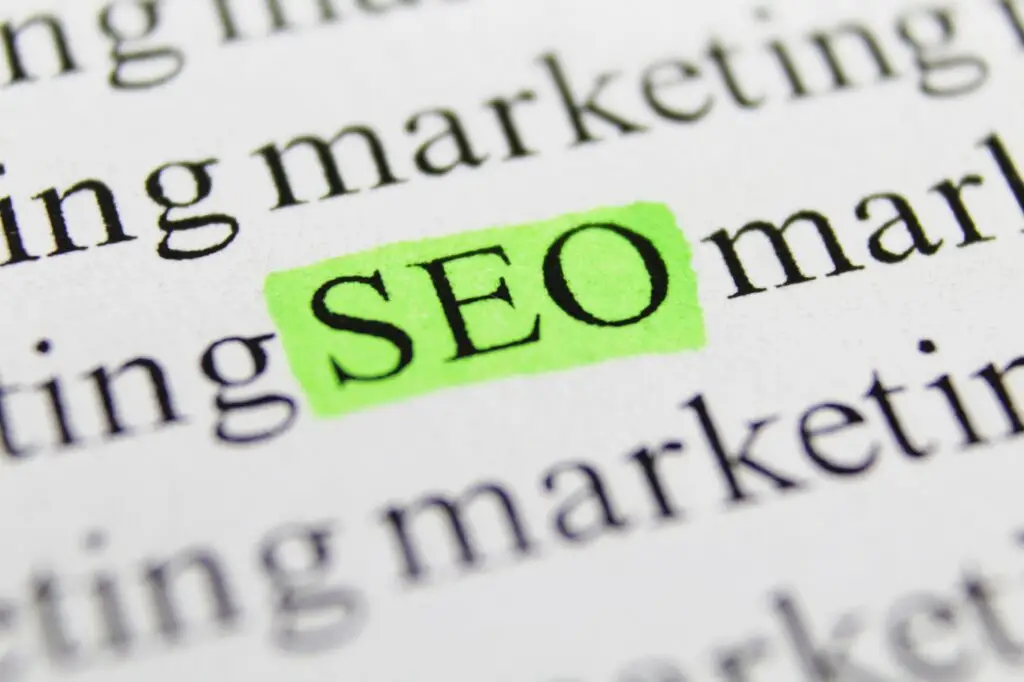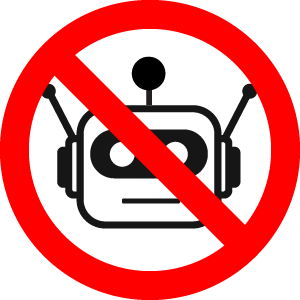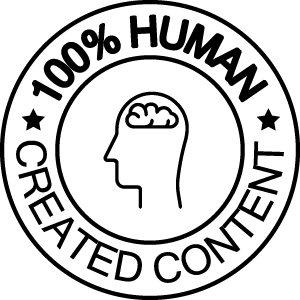If you’re a content creator, you know that one of the most important and concurrently difficult parts of the job is marketing. It can be challenging to get your blog or content noticed among the vast sea of the internet, which nearly 5 billion people use regularly. However, it is not at all impossible – especially with the help of a Human-Created Badge.
In recent times, with the introduction of AI language models such as ChatGPT, content creators have been letting this soulless string of code regurgitate massive volumes of content in an attempt to increase their SEO – but is this working?
Well, turns out it’s not.
As humans, we subliminally value human-created content way higher than that of AI. And google knows this – which is why we have created the free human-created badges on our pages so that you can show off your content as human-made.
But why does this badge add so much value? In this article, I will give you a quick crash course on SEO and Google E.A.T in relation to AI, and you can decide for yourself —
What even is SEO?
SEO stands for Search Engine Optimization; it is the practice of optimizing a website’s structure content to improve its visibility in search engine results pages (commonly known as SERPs).
The entire goal of SEO is to rank higher on Google, so that your site has a higher chance of being spotted right away and, as a result, drive more traffic to your website.
Google uses complex algorithms (also known as crawlers) that continuously scan the entire internet and then evaluate the quality of websites and their content. They mostly look at website structure, backlinks, user experience, and, most relevant to us: content.
Remember that Google is essentially just a very complex marketing company, and as such, they need its users to have the best and most relevant experience possible. This is why Google spends so much time ensuring that websites have real content that actually adds value.
And spoiler: AI content does not add a lot of value.

Why is AI-generated content bad SEO?
Artificial Intelligence crashed over the internet like a tsunami in recent months and has since flooded every nook and cranny of the web. For content creators, it quickly gained popularity because it was an incredibly quick and cheap way of producing content at a scale. The “path of least resistance”.
There is one massive problem, though: AI merely regurgitates massive strings of data and never creates anything new and original that adds real value to content.
Although you can create a large amount of content and include many keywords, Google still recognizes that it may not meet the standards of high-quality, human-generated content that their algorithms seek. As a result, your content might get penalized in the rankings.
Let me go a little bit more in-depth:
Lack of Relevance and Quality:
AI-generated content lacks the depth and relevance that human-created content provides. Search engines prioritize high-quality and relevant content that provides value to users. AI-generated content lacks these qualities and as a result, leads to poor SEO performance.
Duplication and Plagiarism:
AI-generated content is highly prone to duplication and plagiarism, which has a massively negative impact on SEO. Search engines penalize websites that publish duplicate or plagiarized content which then results in lower search rankings and decreased visibility.
Keyword Stuffing and Over-Optimization:
AI-generated content will typically keyword stuff its content for the sake of “over-optimization” – which also screws over your SEO. Google penalizes websites that engage in this form of keyword stuffing which results in lower search rankings and decreased visibility.
Poor User Engagement Metrics:
Essentially, AI-written content is boring to read; it’s homogeneous and stale, like eating chips that have been sitting out for several days. If the content isn’t engaging, people simply won’t engage with it, resulting in high bounce rates or low time on the page. Search engines take these metrics into account when ranking sites, which is why it will negatively impact SEO.
How Exactly Does Google Determine Bad SEO?
As I mentioned earlier, Google puts a huge focus on the actual content on a website to determine how high it gets to rank. The top three areas that Google gun for in its evaluation is Expertise, Authority, and Trustworthiness (E.A.T).

Expertise
This refers to the knowledge and experience of the content creator who publishes on a website. Google is going to continuously look for signals that demonstrate the creator’s expertise, such as their credentials, education, and professional experience.
For example, if you’re writing a medical blog, Google is going to see if you have the necessary medical qualifications and expertise to actually be able to produce high-quality medical content.
Authority
This one is less related to the influence of Artificial Intelligence, but to put it simply: authority refers to the reputation and influences that your website has within your niche or industry.
(Essentially: do you have quality backlinks?)
Trustworthiness
Last, Google is looking for the reliability and accuracy of your content. Is what you’re saying true and fact-checked? Do you have credible sources to back up your claims? Do you have positive reviews, editorial guidelines, and transparency about ownership and funding?
This is an area where AI-produced content has severely hurt content creators because AI is often simply wrong or lacks contextualization to accurately convey information. I cover an excellent example of this in my article: “Why Using AI To Create Content Is A Horrible Idea In 2023” – essentially, ChatGPT was unable to provide an accurate answer to a very simple question.

Why A Human-Created Badge Will Help You
This entire article could be summarized into 5 words: using AI is bad SEO.
By ensuring that you only produce human-made content on your website, you are setting yourself up for significantly better SEO than your competitors that are using AI.

When you put any of our free No-Ai Icons on your website, you are telling both your audience and Google that you are a real human, with original content curated from your own expertise and experiences.
This increase in trust from Google will then help increase your SEO, which results in more people coming to your website – and more happy people staying on your website because the content is human.
No matter how you spin it, human-made content is more valuable. Show the world today.
THIS ARTICLE WAS MADE WITHOUT THE ASSISTANCE OF ARTIFICIAL INTELLIGENCE
